Round, unfinished and endless — 10 most unusual bridges in the world
Categories: Design and Architecture
By Pictolic https://pictolic.com/article/round-unfinished-and-endless-10-most-unusual-bridges-in-the-world1.htmlBridges can be not just functional structures, but real attractions, must-see for tourists, and this is not only the Golden Gate in San Francisco. We present 10 amazing bridges that combine beauty and aesthetics, original engineering solutions and the best materials.
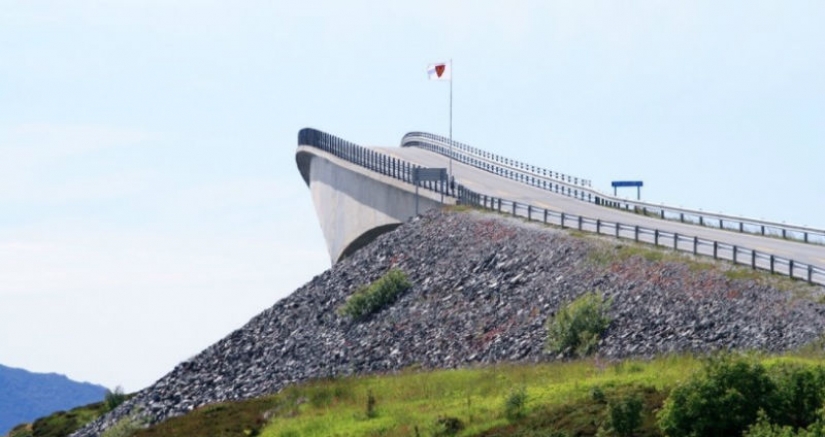
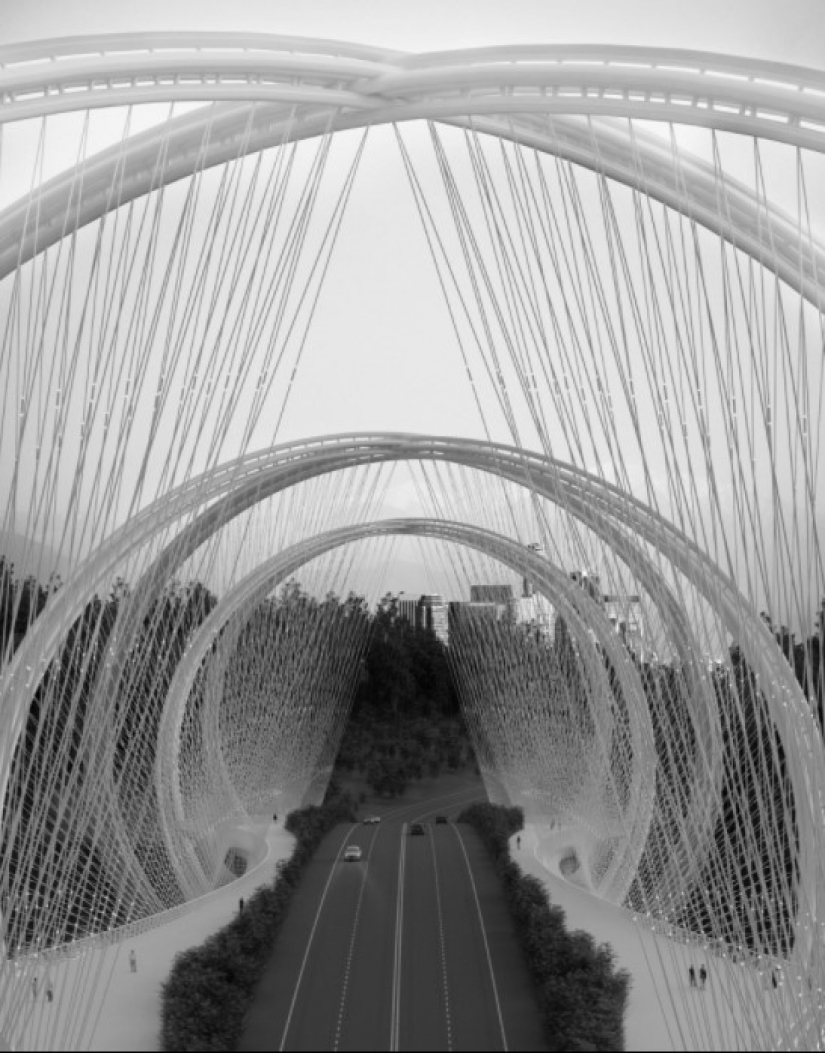
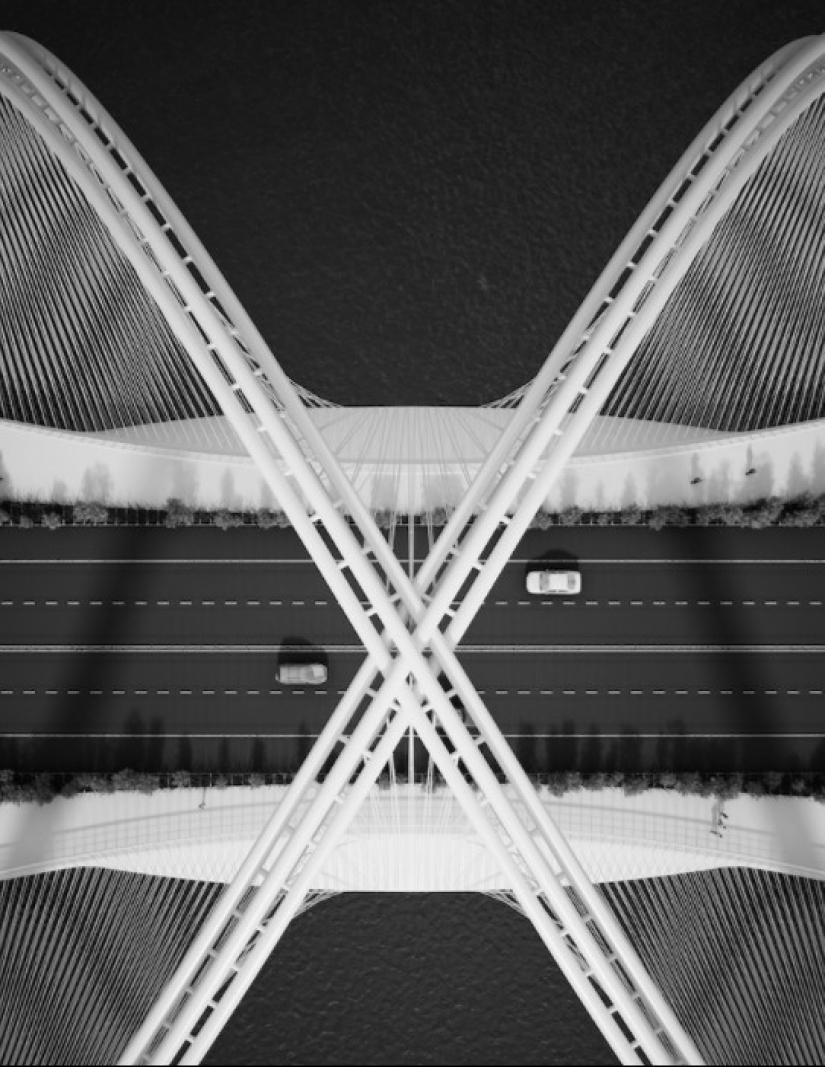
In 2022, Beijing will host the Winter Olympic Games. There is not enough snow in the central part of the city, so some competitions will be held in the northwest of the city - in the Zhangjiakou district. The old road between the districts stretched 203 kilometers, so it was decided to build a new one, and the San Shan Bridge (translated as "three mountains") became part of it.
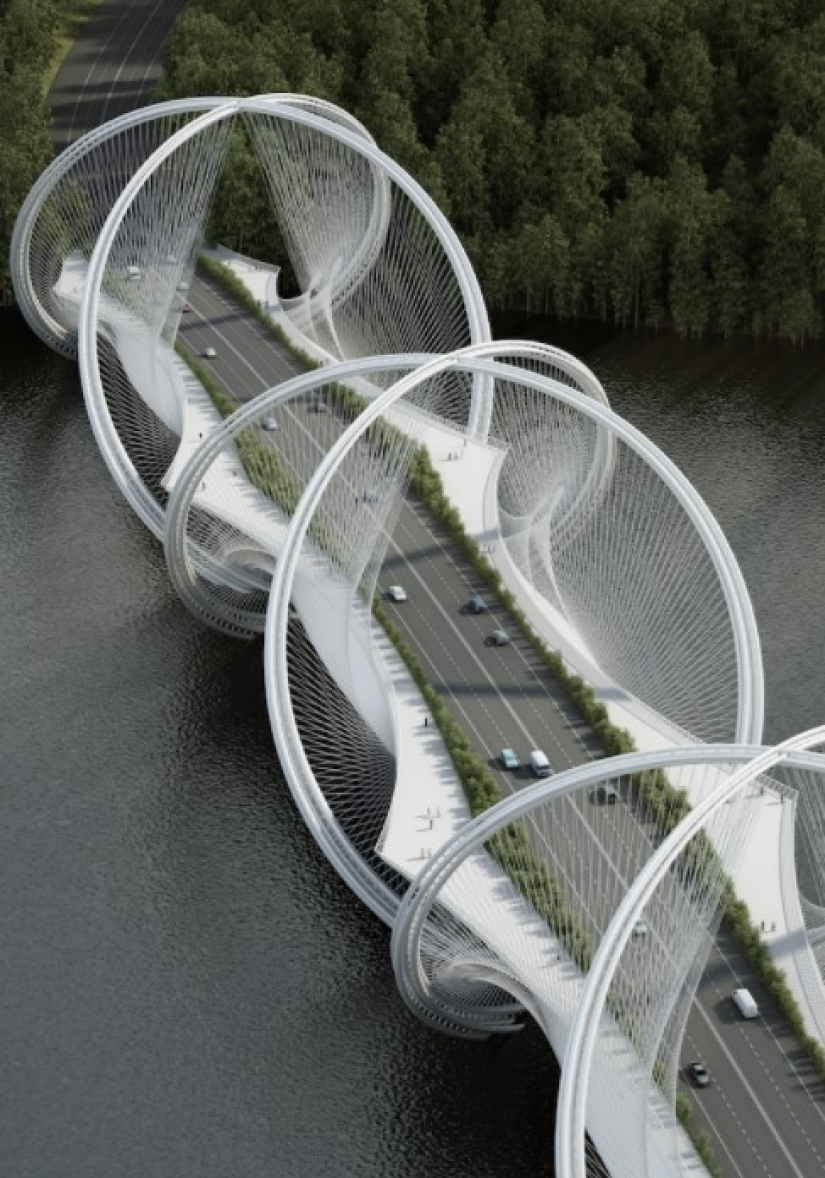
The bridge was developed by the Beijing architectural bureau Penda and the British engineering firm ARUP. The architects were inspired by the Olympic rings, the Xishan Mountains and the DNA spiral. The bridge is supported by six rings, and their connections are designed to resemble mountains. The height of the "mountain peaks" is 92 meters, and the length of the bridge is 452 meters.
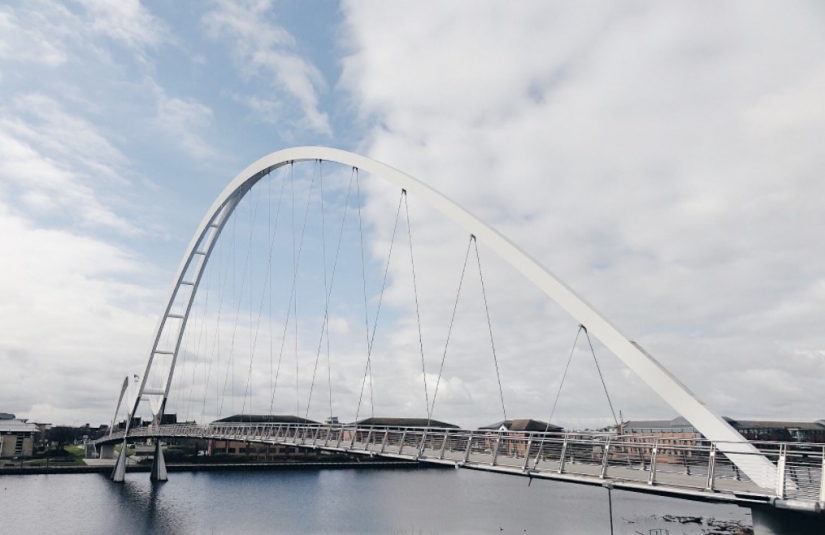
Along the edges of the bridge there are wide pedestrian paths separated from the roadway by bushes and trees.
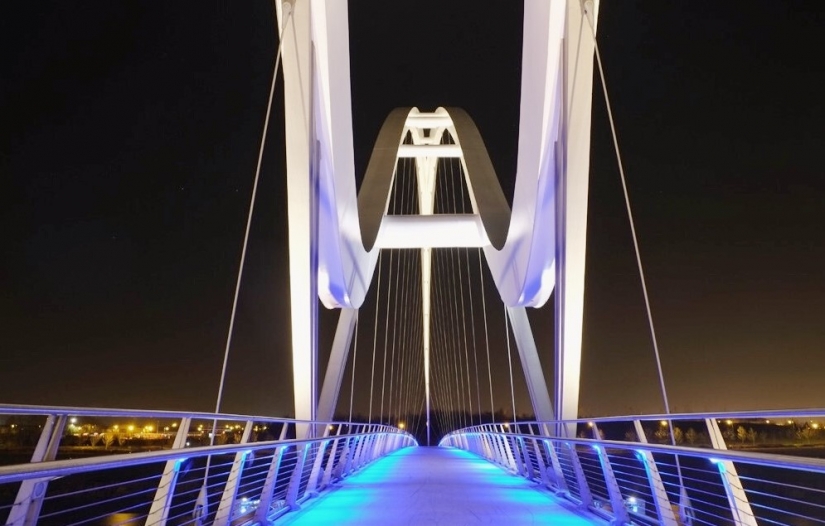
The 180-meter Infinity Bridge (i.e. "infinity") is the first stage of a project to restore bridges and embankments in the English city of Stockton-on-Tees. A new bridge for pedestrians and cyclists connects the park on the northern embankment of the River Tees with the university campus and the business park on the south.
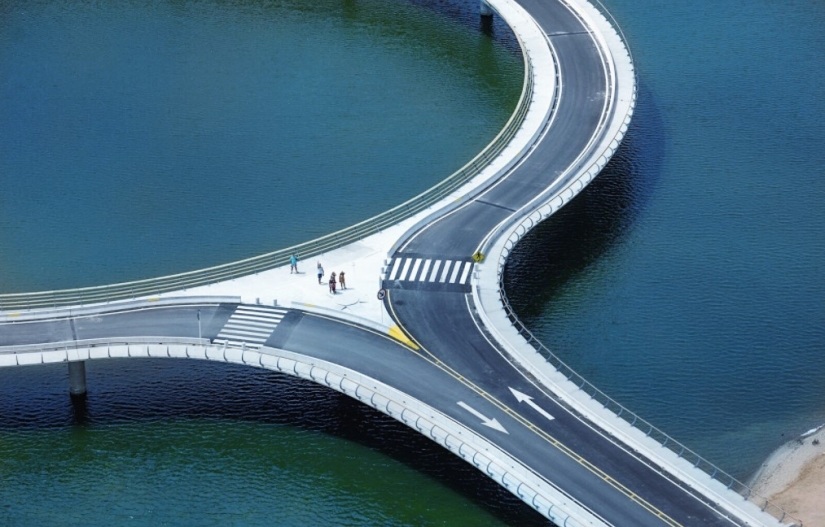
Spence Associates design studio and Balfour Beatty engineering company worked on the creation of the bridge. Speirs and Major designed the lighting, and this is the main feature of the design: at night, the arches of the bridge, together with their reflection in the water, form an infinity sign.
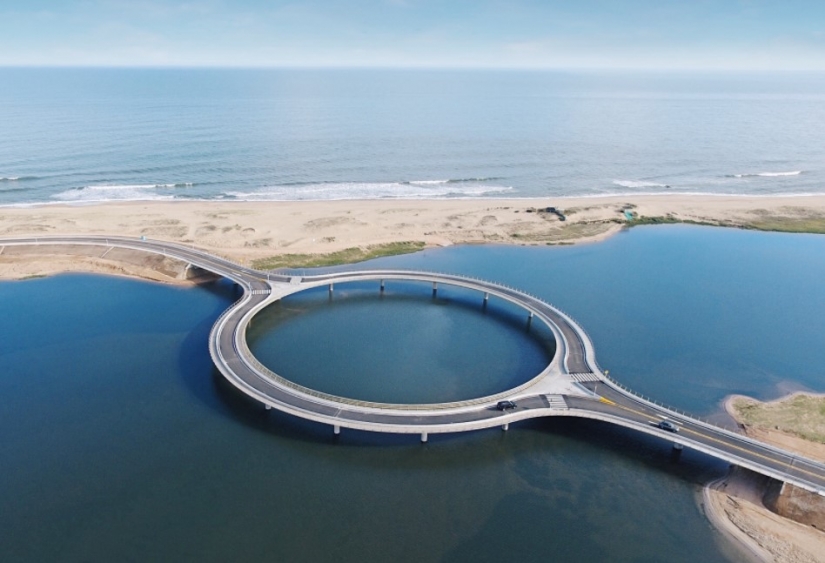
The line in the center that divides infinity into two parts is a pedestrian zone. This road is lined with LEDs of two colors: when a pedestrian steps on the module, it glows white, and the modules passed leave a blue trail behind the person.
The Round bridge is part of a new road that runs along the Uruguayan coast and connects several resort towns. The bridge is located in the lagoon Garzon.
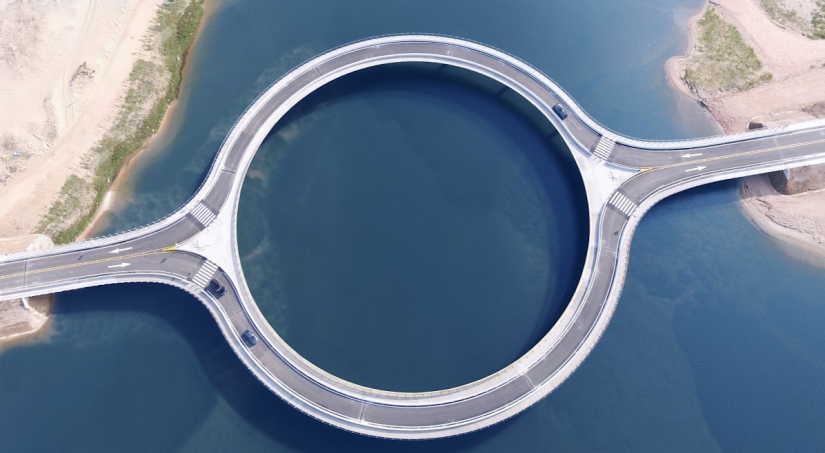
Instead of putting a speed reduction sign on one of the most beautiful sections of the road, architect Rafael Vignoli proposed to build a bridge that would naturally reduce the speed of cars. In addition, passengers will have more time to enjoy the view.
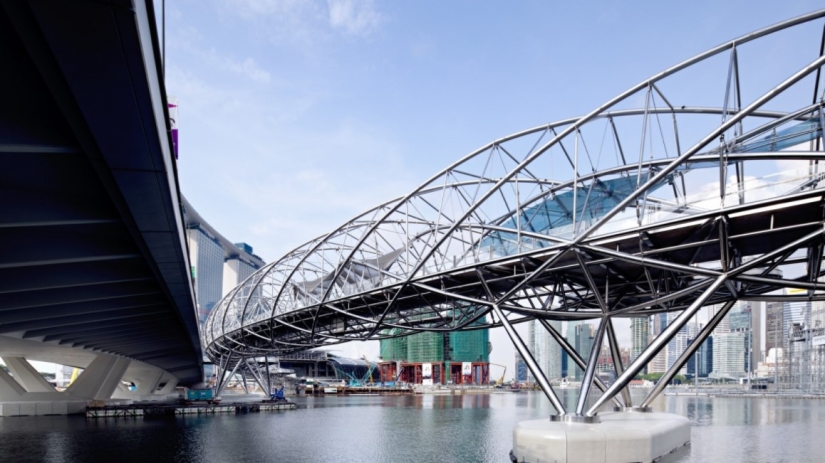
With the appearance of the bridge, the once calm lagoon has become very lively: wakeboarders come here to shoot spectacular videos, local fishermen catch fish from the bridge, tourists on kayaks designate the bridge as a gathering point, local fishermen fish here, and at night they arrange discos here.
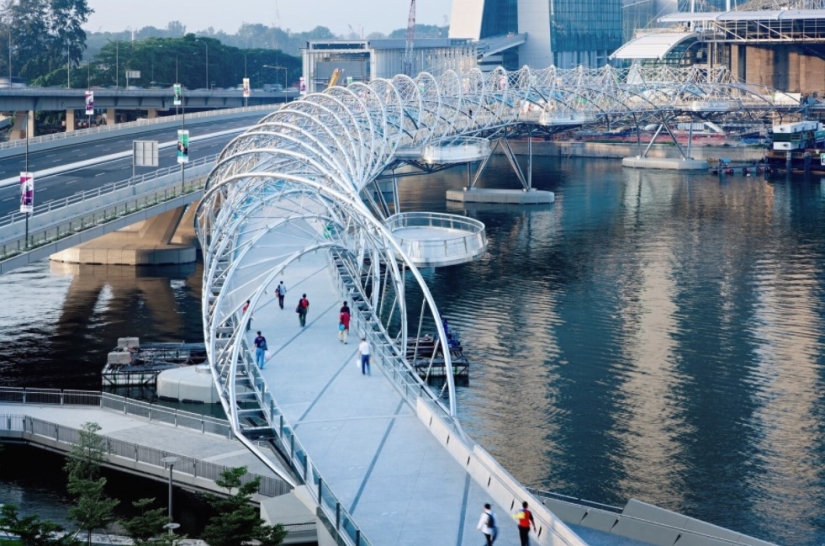
Before the start of construction, Vignoli said that the bridge would not affect the ecosystem, but it turned out that 450 tons of steel, 40,000 meters of tension cable and 3,500 cubic meters of concrete would be used for the construction. Environmental activists staged protests, but the construction did not stop.
Helix ("spiral") is a pedestrian bridge across the bay in the center of Singapore. The skyscrapers of the business center and the football field are visible from four protruding observation decks, and from here you can also watch laser and water shows.
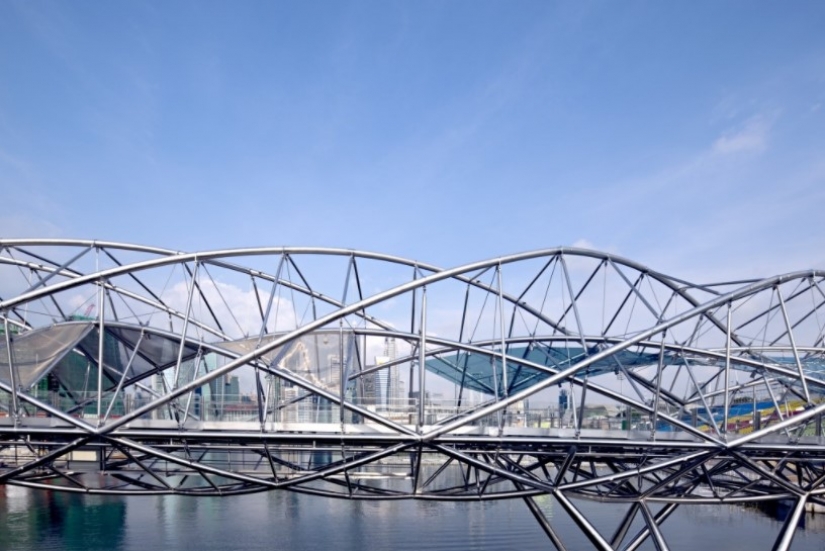
The Australian architectural company COX proposed to build a pedestrian bridge a meter from the existing automobile. With such a close location, the contrast between the old heavy construction and the new one is better visible — thin and futuristic, which took five times less steel.
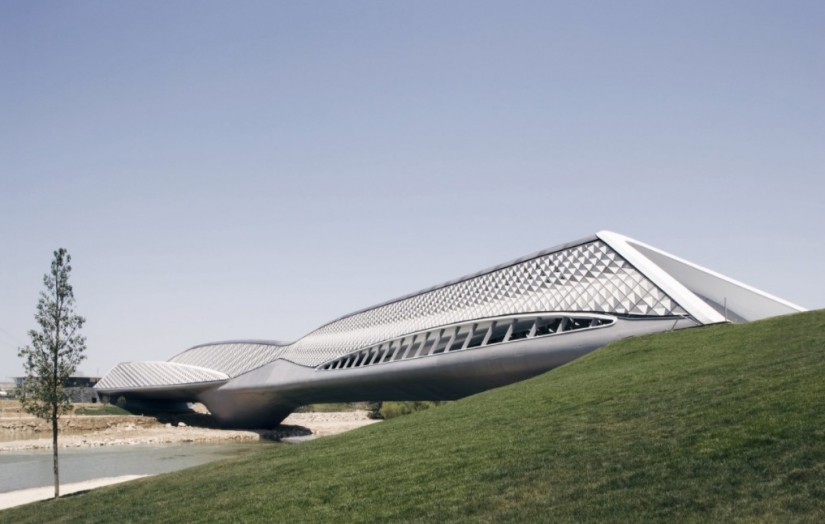
The 280-meter bridge is called an engineering miracle: thanks to the structure like a DNA molecule, it can withstand 10 thousand people. Thanks to the mirrored canopies inside the structure, pedestrians take a break from the tropical sun.
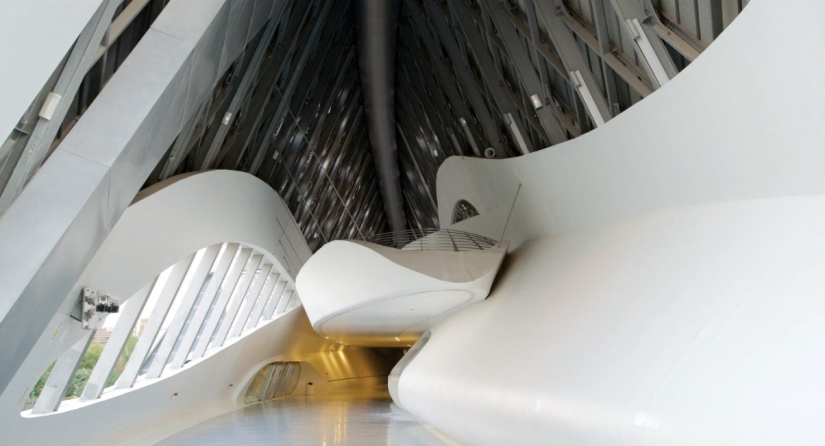
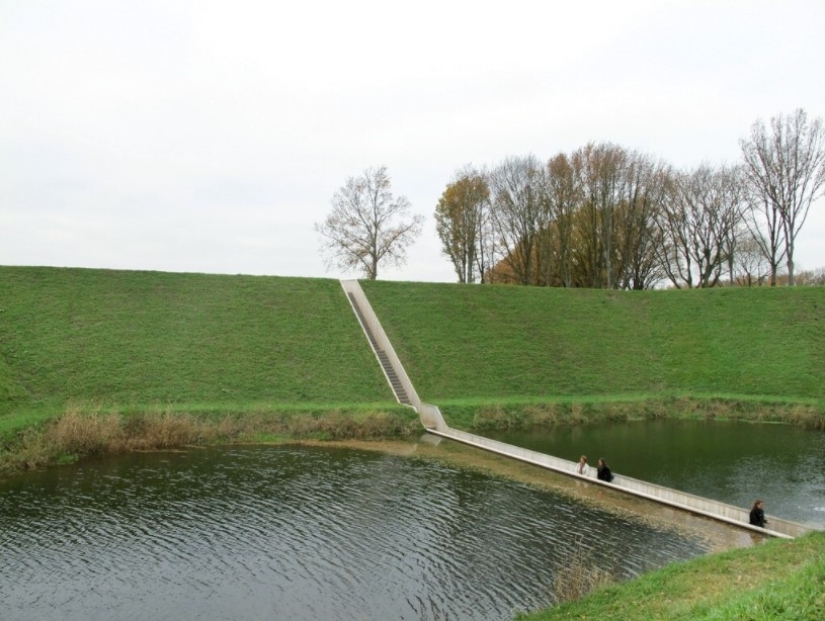
In 2008, a world exhibition dedicated to construction on water was held in the Spanish city of Zaragoza. Especially for this event, Zaha Hadid designed a bridge - visitors passed through it to the exhibition. Now there are interactive exhibition areas and master classes on design, architecture and new technologies are held there.
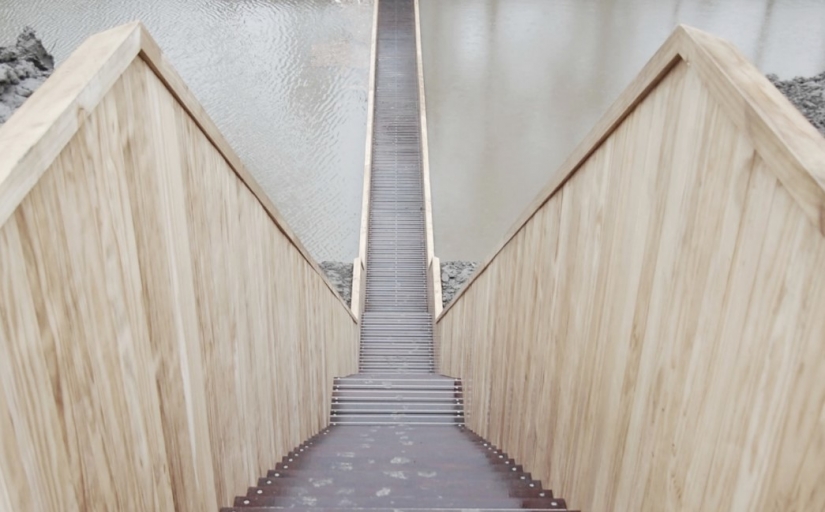
The outer covering of the bridge consists of triangular panels: their structure reminded Zaha Hadid of the ripples of the Ebro River. The walls and ceiling are dotted with narrow openings: air and sunlight pass through them.
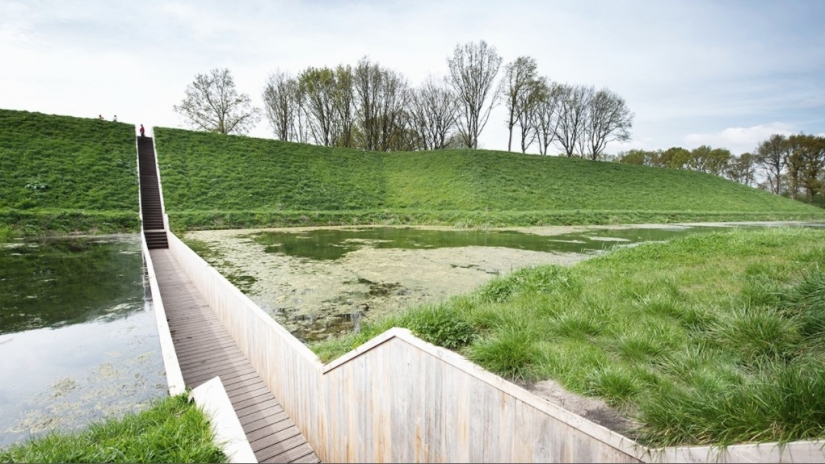
The center of the 290-meter bridge rests on a small island in the middle of the river: otherwise, 7000 tons of concrete would be impossible to throw across the river.
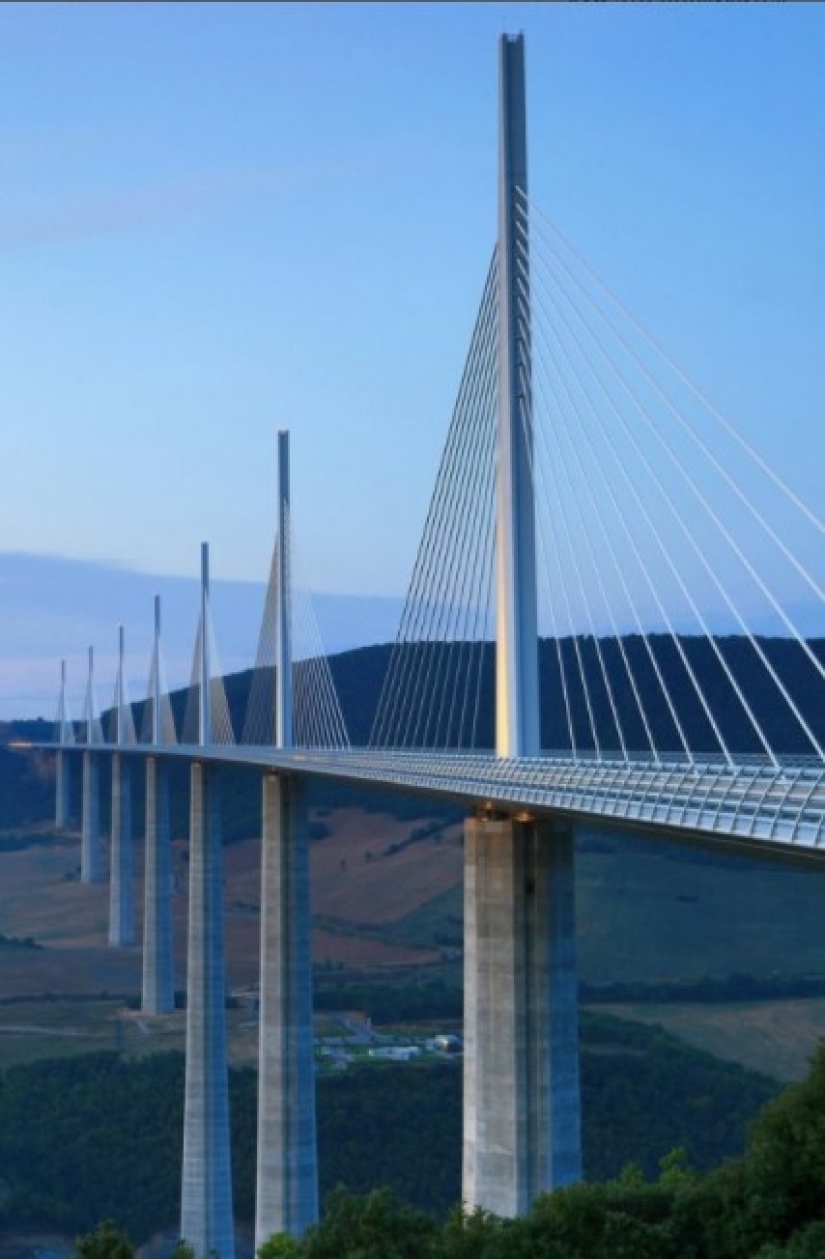
The Moses Bridge is located on the territory of the 17th-century Dutch Fort De Roover, surrounded by a moat with water. After the reconstruction of the fort, it turned out that visitors would not be able to get to the building: the moat is too deep to ford it, and too shallow for boats. The employees of Ro & Ad company had to provide access to the fort and at the same time preserve the aesthetic integrity.
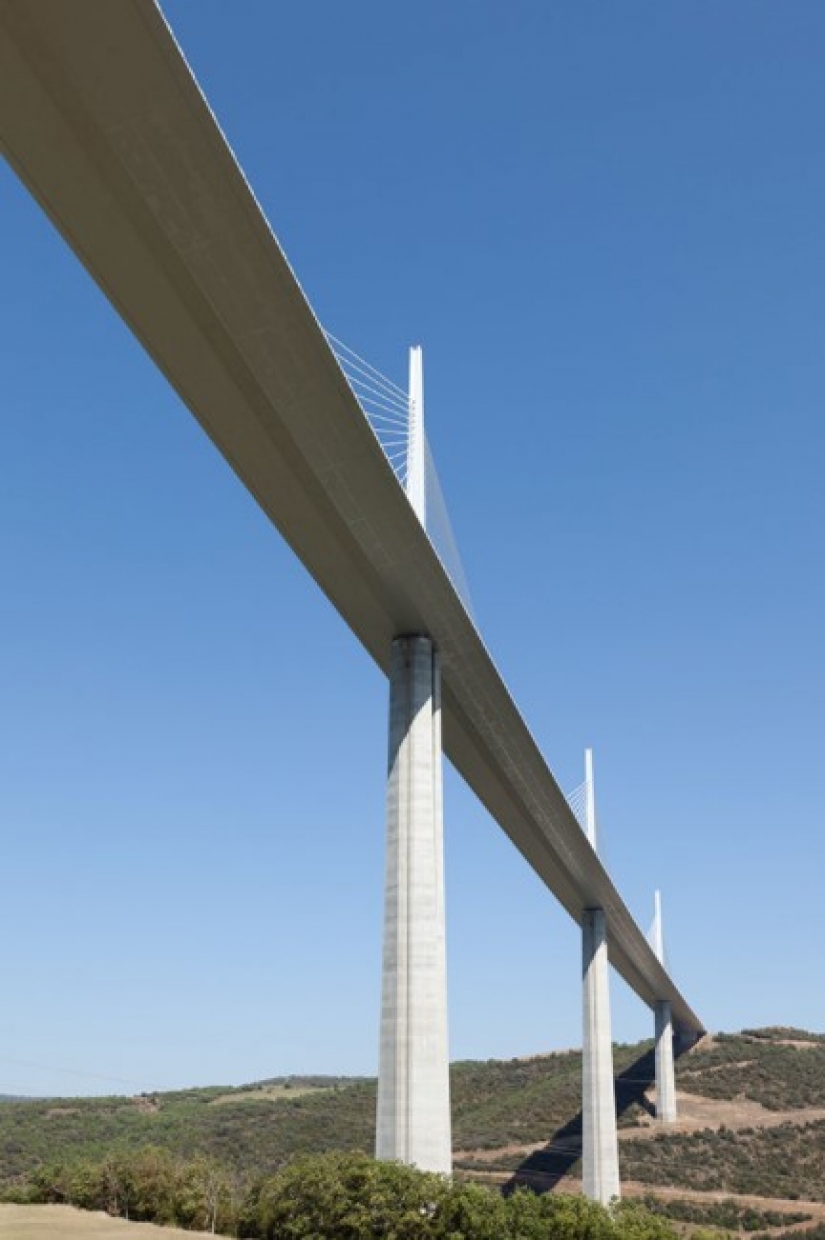
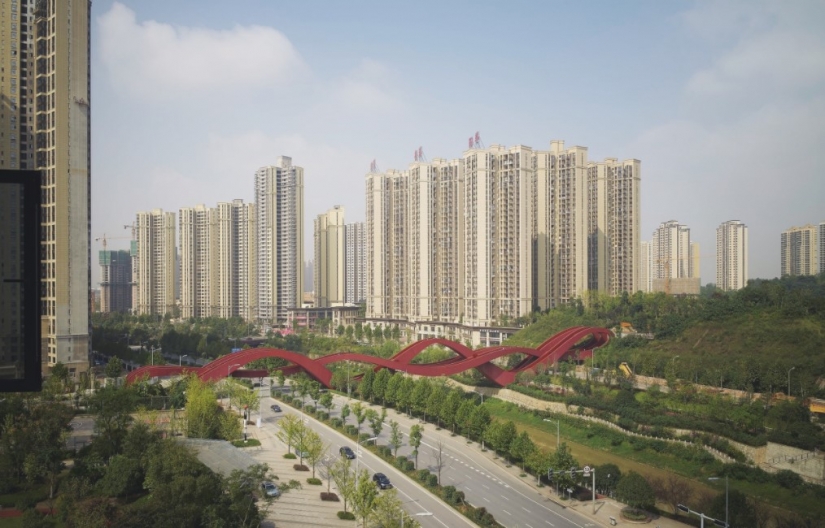
Engineers have come up with a solution — to disguise the path by building it under the waterline of the moat so that the structure is not visible from a distance and does not violate the historical view. For this purpose, the Accoya material was used — modified wood, which has not been destroyed in the aquatic environment for 50 years. To prevent the bridge from flooding after heavy rains, engineers built two dams that regulate the water level and installed a pump to pump it out. All construction work was carried out in a dried-up moat.
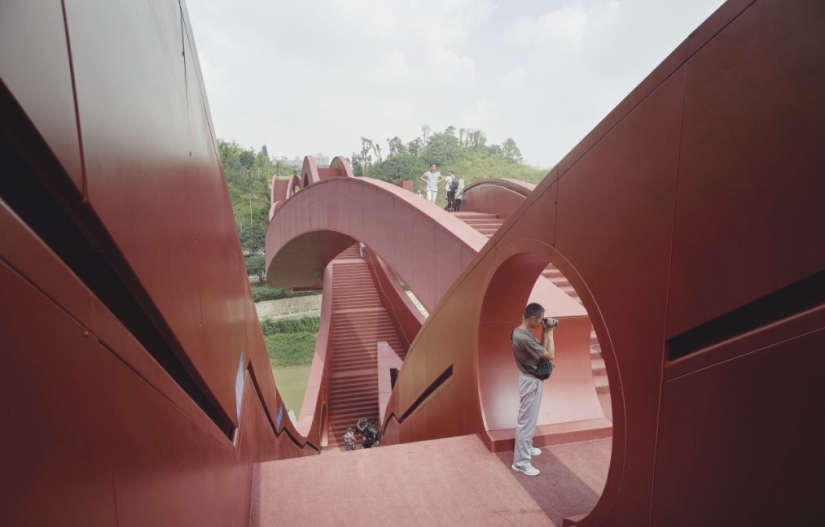
During the high season, traffic jams always formed on the highway from France to Spain. The problem was to be solved by a new bridge, the development of which was entrusted to the French engineer Michel Virlogue and the British architect Norman Foster.
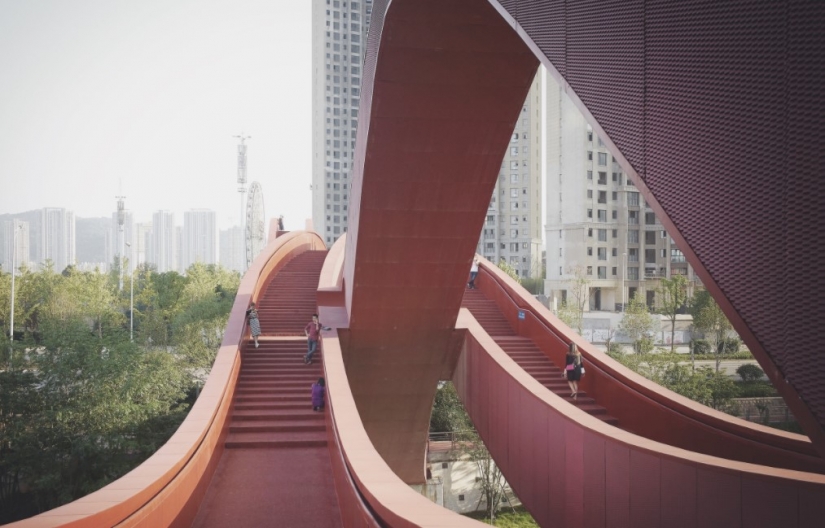
Work on the bridge — from the first drawings to the completion of construction — took 17 years. The team was hampered by unstable soil, flooding of the valley and strong winds. In 2004, the completed Millau Viaduct became the tallest bridge in the world: 341 meters, 20 meters higher than the Eiffel Tower. Other parameters of the structure are also impressive: 2460 meters long, 32 meters wide and 206 thousand tons of mass.
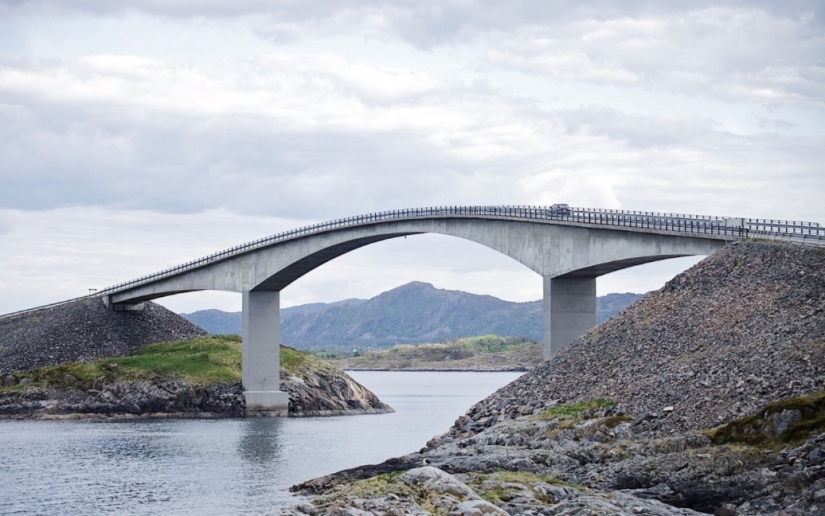
The viaduct stands on seven pillars, the diameter of the longest of them at the base is 24.5 meters. Parts of the roadway were erected through supports using jacks controlled from a satellite. To prevent the canvas from deforming, scientists have developed a new unique formula of asphalt concrete in three years.
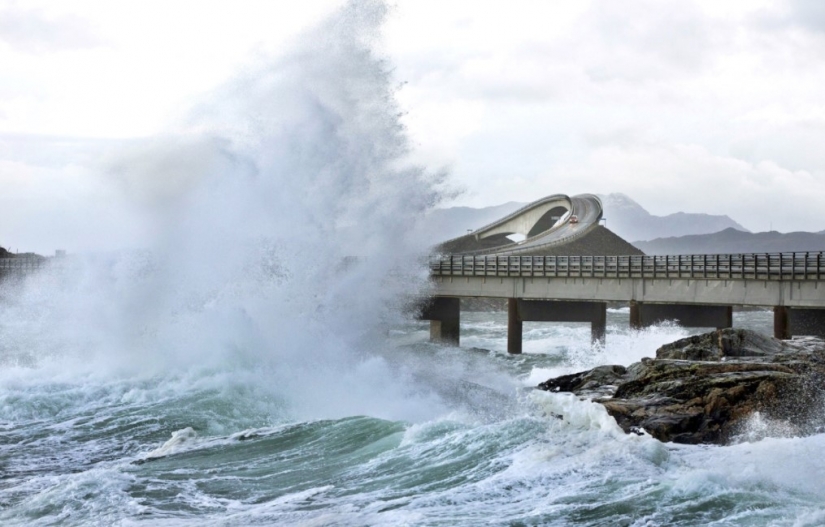
The Lucky Knot pedestrian bridge in the Chinese city of Changsha solves not only a transport, but also a recreational task: it connects the park, the road and the embankment, which are at different heights. The bridge offers panoramic views of the river, the city and mountain ranges, and children use the structure as a playground.
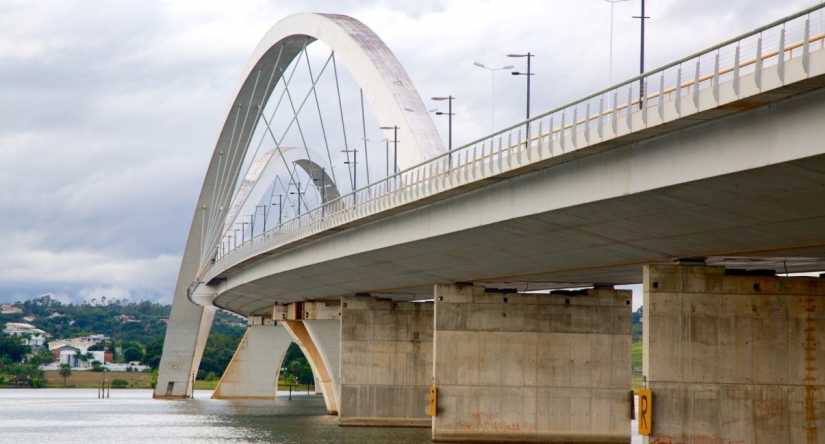
The bridge is 185 meters long and 24 meters high and is made entirely of steel. Architects from the Sino-Dutch bureau NEXT were inspired to create a design in the form of intertwined ribbons by the Chinese art of weaving patterns, in which a knot means good luck. The bridge connects three routes into one "node", making it easier for pedestrians to access different points.
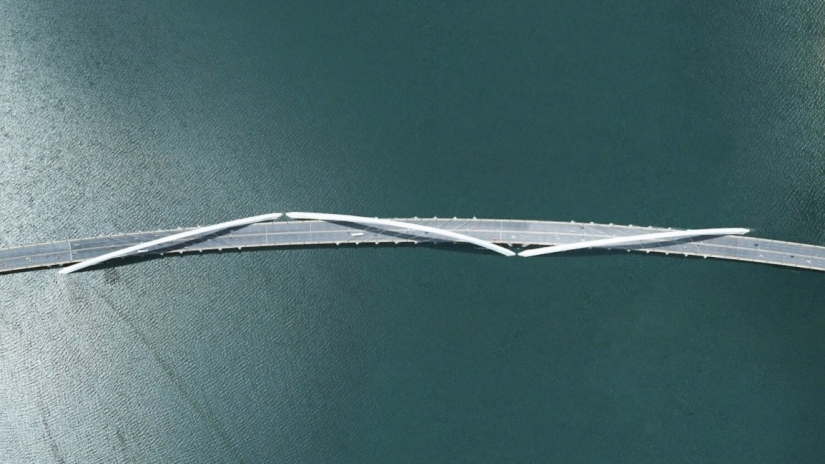
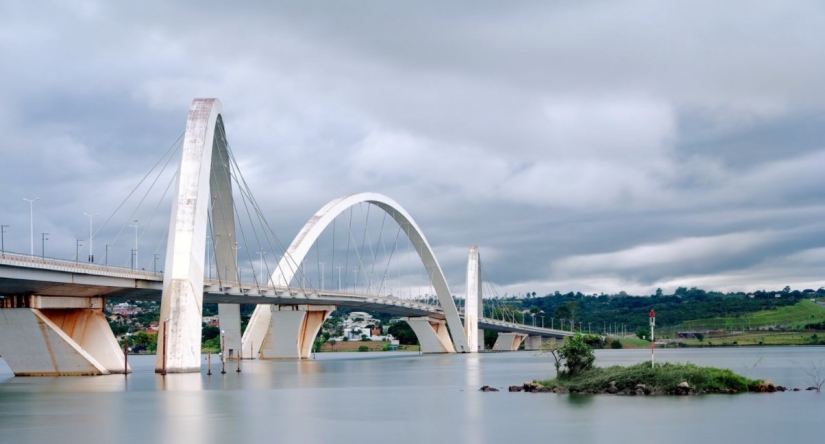
In 1989, the Atlantic Road of eight bridges was opened in Norway. The longest of them, the Storsezandet Bridge, connects the mainland and Averoy Island. Due to frequent hurricanes, the construction of a relatively small bridge took six years.
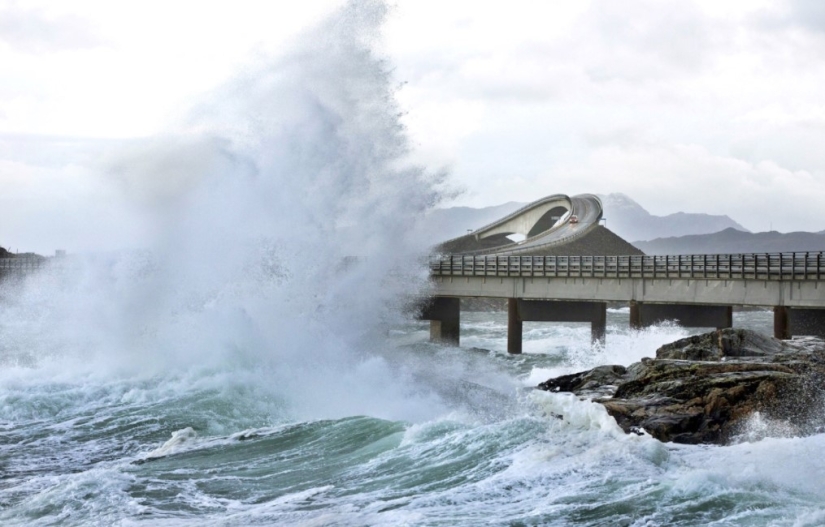
Drivers who see the bridge for the first time usually slow down: from different angles it looks like an unfinished building or a giant springboard. Locals even nicknamed the construction "drunken bridge" and "bridge to nowhere". With this form, the architects wanted to emphasize the lines of the Norwegian mountains and convey the feeling of the harsh, unstable northern climate.
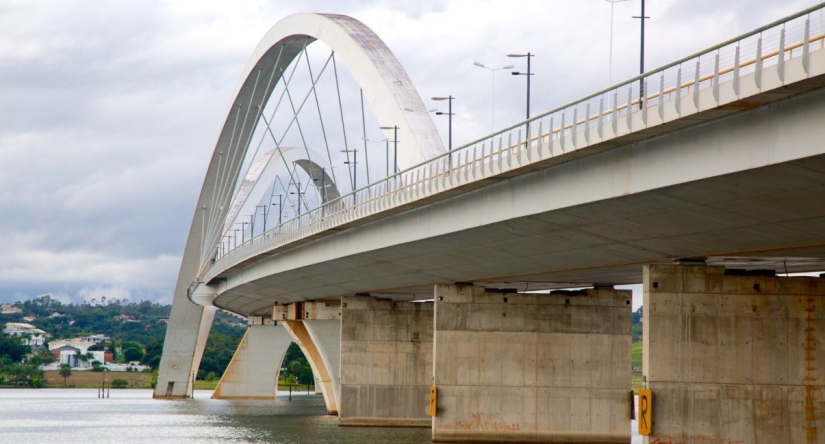
The 259-meter-long structure stands on two supports, its maximum height is 25 meters. High-strength concrete withstands constant bad weather and the onslaught of huge waves. There are four parking lots near the bridge for tourists and drivers who wait out hurricanes there.
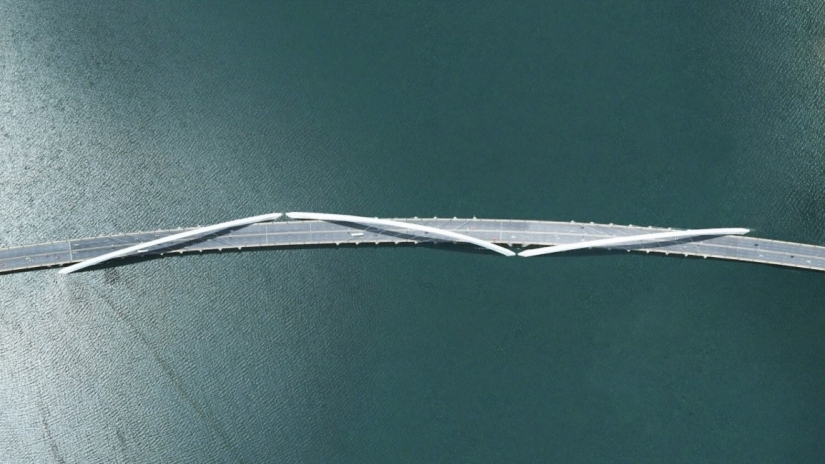
The Jusceleno Kubicek Bridge is located in the capital of Brasilia and is named after the 21st President of Brazil, who founded the city in 1950. The young city is still developing intensively, there are more and more people and cars in it. The biggest traffic jams were on two bridges connecting the southern and central parts of the city, so in 2001 a third bridge appeared. It has become the widest thoroughfare of the city, a place for walks, excursions and visits of tourist ships.
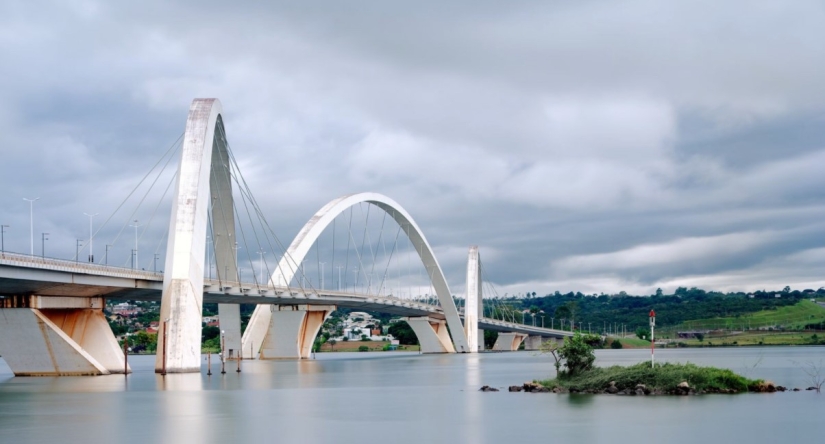

The bridge stands on four concrete pillars. The arches and steel arches that support the roadway are made of steel — it is not produced in Brazil, so it is expensive and highly valued. The length of the structure is 1200 meters, the width is 24 meters, the height of the arches is 62 meters. Three-lane traffic has been organized in each direction, and two 1.5‑meter paths have been set aside for pedestrians and cyclists on each side of the bridge.
Recent articles

It's high time to admit that this whole hipster idea has gone too far. The concept has become so popular that even restaurants have ...

There is a perception that people only use 10% of their brain potential. But the heroes of our review, apparently, found a way to ...

New Year's is a time to surprise and delight loved ones not only with gifts but also with a unique presentation of the holiday ...